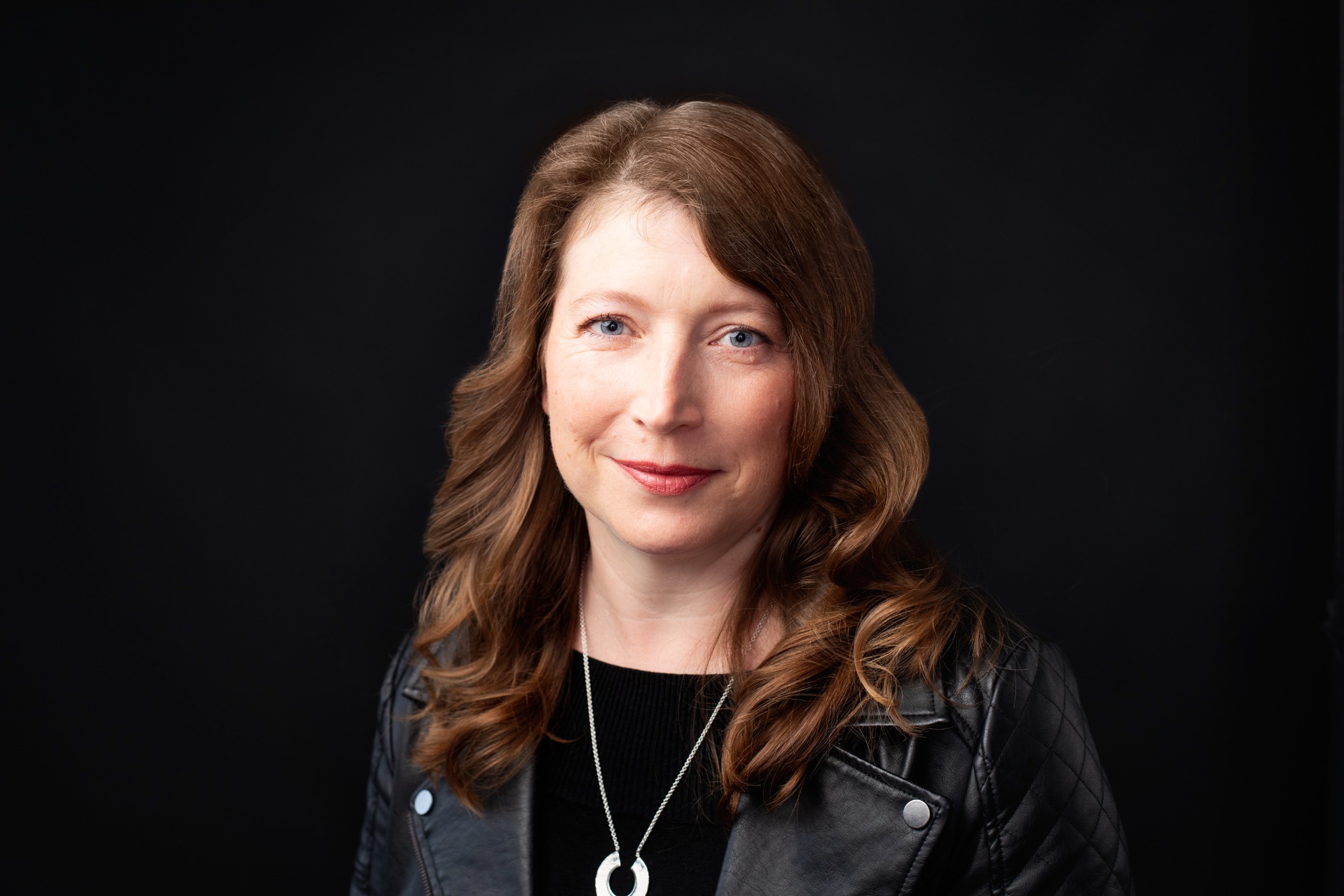We're deciding to use more digital and cosmetic "tweaks" than ever. If it's our choice, what's the problem?

Clare Chambers is a professor of political philosophy and a Fellow of Jesus College, University of Cambridge. Her work deals with contemporary liberalism, social construction, feminism, and social justice. Her latest book is “Intact: A Defence of the Unmodified Body”.
Clare will be talking at HowTheLightGetsIn, the world’s largest ideas and music festival, taking place from 21-22 September at Kenwood House, London. She will be speaking in the festival debate ‘Girl Power’, exploring what femininity and what a more feminine world looks like.
Enjoy 20 per cent off festival tickets with code NEWHUML24 here.
You have this concept of the “unmodified body”. But aren’t all bodies modified in some way?
Yes of course, all bodies are modified in some way. I mean the very fact that we’re sitting here having this conversation, rather than going for a run or whatever, is affecting the way our bodies are. Everything we do changes our body. So the unmodified body isn’t a literal concept. It’s a political idea. The unmodified body is a body that is allowed to be good enough, just as it is, however it is – whether that’s with makeup or without, with tattoos or without, and so on. Now that might sound very trivial, and in one sense, it is. It’s a simple idea. But it’s actually very radical, very difficult to achieve, because we are absolutely surrounded by pressure on every side that tells us constantly that our bodies are not good enough just as they are, that they should always be better – thinner or more muscly, less gray hair, whatever it might be… more beautiful.
That wording you use, “allowed to be” enough, seems to point to external factors as opposed to our personal choice. But choice is a tricky concept, isn’t it?
Lots of my work, including [my 2022 book] Intact and across my philosophical work, is about this complicated concept of choice. In liberal democratic societies, we tend to prioritise choice, and that’s because we’re wanting to protect against ideas of coercion or prohibition. We have to protect people’s freedom. We don’t want to force people to do things that they don’t want to do, particularly concerning something as personal as our bodies, right? So from that point of view, yes, I respect people’s choice to do what they want to do to their bodies.
But I really want to problematise that idea of choice. Firstly, we choose in a context. We are affected by what is available and what our context tells us is appropriate. So you can see this in all kinds of examples – like Botox, right? Maybe 10, 15 years ago, Botox was not very well known. I remember when the first articles in newspapers started to come out and it was kind of a shocking thing. Whereas now Botox is understood as more like routine maintenance. Women of ever younger ages – even in their early 20s – are thinking that they should start with a Botox regime. It’s not choice that explains that. It’s the availability of the procedure and the extent to which that procedure is presented as normal and expected and required. Very often, our attitude to our bodies is not shaped so much by choice as it is by shame.
We’re talking very generally, but what is the evidence for this?
The empirical evidence shows us the overwhelming weight of shame about our bodies that almost everybody feels. There’s one very large study that continues to resonate with me, of tens of thousands of adults, and it found that 70 per cent of adult women felt media pressure to have a perfect body. So not just a nice body, but a perfect body. For men, that was not quite the same. Two thirds of men in that same study felt ashamed of their bodies.
What do you think of the growing popularity of Ozempic? Although it’s not been licensed as a weight loss drug, people are taking it to help with obesity – but so are people who don’t have a medical problem.
People often say, surely there are some kinds of body shame we ought to be emphasising, and we need to do something to combat obesity. But nobody is obese because they don’t know that they should lose weight. Everybody knows that society wants them to be slim. So the question then is, why are obesity levels as high as they are? And that’s a highly complex question, which is to do with a set of interactions between food availability, what’s in food, what’s affordable, the nature of our eating habits… there’s a whole complicated interaction behind all of this, which gives us the unhappy result that the vast majority of diets fail. I think it’s something like 95 per cent of diets fail in the sense that you can lose weight on the diet in the short term, but for almost everybody that weight comes back in the longer term. In that context, weight loss drugs look like the answer, right? But the [use of Ozempic for weight loss] is in the very early days – it’s unclear what the long-term effects will be, whether it will be overall an evidence-based solution. And I think we’re just back in that same cycle of heaping on the shame, the blame, and individualising the problem.
Your event at HowTheLightGetsIn festival will discuss the re-emerging trend for traditional feminine aesthetics, in the wake of the Barbie movie for example. What’s your take on this?
I don’t think it ever really went away. The emphasis on gender norms is always there for femininity and masculinity. It slightly shifts, but it doesn’t ever go away. One of the things that’s come back in fashion is 90s pop culture and the kinds of body shapes that women were expected to have in that era – they were very, very thin. There’s been more of a focus on curves and buttocks and breasts in the decades since, but the demand for slimness never went away. Heather Widdows has this wonderful book called Perfect Me, where she describes a kind of beauty ideal as having various facets, one of which is you have to be slim but with curves, right? The question then becomes, how big should the curves be, and how slim should slim be?
But I do think there have been noticeable trends in the last 10 to 15 years with the overwhelming impact of visual culture – smartphones, selfies, social media, having a camera in our pocket all the time. Always being able to take pictures of ourselves and if you don’t like it, you take another one and another one and another one. So we have this constant mirror reflecting back on ourselves. And that, I think, is partly why some of the makeup trends have developed as they have – the contouring, very high levels of makeup, intended to shape the face, and trying to create an airbrushed or filtered look.
Digital filters modify the body but only through that particular platform or medium. What new challenges do they pose?
On the one hand, it might seem that the filter is the better form of modification, because it is temporary, reversible, completely side effect free in terms of your physical health. Right now we’re talking on Zoom and I could be wearing Zoom lipstick, and then I also wouldn’t have to spend the money on real lipstick. And when you’re thinking about more serious surgical interventions, like Botox and fillers, you might think, well, doing that with a filter takes away the risk and the cost. But what we do when we filter our image is we alienate ourselves ever more strongly from our actual bodies, and the separation between what we really look like and what our image is becomes greater – and that, I think, can bring with it an increase in shame.
How does this relate to your idea of shametenance?
We do lots of things to maintain shame. Some of the things are just practices like removing body hair or keeping menstruation very secret, all the things we do to conceal our real bodies. But the bigger the difference between those two things [our actual bodies and how we appear], the more reason there is to hide and to conceal the real self. So at least if you’re putting on your makeup in the real world, you can then go out into the real world with your makeup on, but you can’t take the filter with your Zoom lipstick and so on. So it’s the prison of the screen.
In the world of cosmetic surgery, Tehran is the capital of the nose job, while in countries like Korea skin whitening and the creation of double eyelids are popular procedures. Is this the promotion of white European beauty standards?
It’s interesting how we think about this. So if you think about the UK and the continuing popularity of sun-beds and tanning products, we don’t understand that as white women wanting to look less white. We say they want to look beautiful, and that is the same understanding you’ll have with the practices that you’ve described. It’s not “I want to look white”, it’s “I want to beautiful”. And so the question is, what is beautiful? And again, it’s about this increasingly homogeneous sort of globalised idea that to be beautiful, you have to have this set of characteristics, each of which are picked from certain kinds of ethnic stereotypes, but none of which are accessible to anybody from a particular background.
What do you think is driving the increase in cosmetic surgery worldwide?
There are all kinds of reasons. The availability of procedures is a huge driver. In the “appearance industry”, the supply of a procedure and product creates demand for that thing. There’s so many bits of our bodies which we might have thought were unproblematic until we see that a product or a procedure exists for that. The most recent example of this is eyelash serum, right? Now you can moisturise your eyelashes. So you go on TikTok, or go to Boots, and you see eyelash serum, and you think, do I need that? Maybe I do.
What about products and procedures for men?
We can see shifts in the idea of masculinity through the history of competitive bodybuilding. Because bodybuilding has always been about images of the ideal man, and when it was first developed as a competitive sport in the mid 20th century it was about looks, but also career and hobbies, and generally, being an all-round virtuous person. And that shifted over the decades leading into the 21st century into just being about size and bulk. And that shift has happened in masculinity generally, right? The example I often use is from the TV series The Good Place, where one of the characters is a geeky philosophy professor, and at one point he takes off his shirt and he’s got the most toned gym body you have ever seen. So men too have to [now] worry about their bodies – even if they’re philosophy professors, even if they’re older.
How does body modification relate to the condition of body dysmorphia?
If you talk to cosmetic surgeons, and if they understand themselves as practicing ethically (which many of them, of course, take deeply seriously) they’ll say body dysmorphia is a contraindication for cosmetic surgery, and if they suspect that someone is suffering from it, they will not proceed. It’s clearly understood that this kind of deep distress or dissociation from one’s body is not something that is cured with bodily changes. Nichola Rumsey, who’s a psychologist of appearance, she puts it a wonderful way where she says, people don’t graduate from low body confidence, it just finds a new target. In the gender context, we have a different way in which it’s being thought of, which is the idea that if you have gender dysphoria, then that is something that can be solved with surgery, and it’s quite interesting to note that distinction. So I think clearly there needs to be a proper evidence-based focus on that question.
When there is that great feeling of deep distress or dissatisfaction or dissociation from our bodies, the question is always what is causing that, is the cause of that really the body, and will the solution to that be a change in the body, or is the cause something else? Does it come from another clinical condition? Does it come from a culture that constantly tells us our bodies are wrong? Does it come from a mixture of all these kinds of things?
Are there any reliable statistics on levels of satisfaction following cosmetic surgery procedures?
A few years back, I was involved in a big report on this done by the Nuffield Council on Bioethics. We undertook a several-year interdisciplinary report into cosmetic procedures, and what we found then was that there is a woeful lack of evidence on this question. So cosmetic surgeons will do post-operative follow ups where they check that wounds are healing, that kind of thing, and typically they will also ask about satisfaction. And satisfaction rates in that short term are very high, as you would expect. You wanted the operation, and now you’ve had the operation. Also the person asking you is the same person who has done the procedure, and most of us feel a sense of social constraint around that. But there just isn’t any systematic medium or long term follow up of cosmetic surgery patients. So we just don’t know.
Why do you think it’s important to debate beauty standards and body modification, as you’ll be doing at HowTheLightGetsIn festival next month?
Firstly, it makes us see that we are not alone. This sense of crushing anxiety and shame about our bodies is something that we all share, and yet it is highly individualised. And so having these debates and seeing the ways in which other people maybe find peace and satisfaction with their bodies in ways that we do not, or struggle with their bodies in ways that we do not, sort of helps to show us that it’s not the bodies that are the problem, it’s the society. So I think that engaging in debate and discussion is always good, but it’s particularly good when it’s getting at this privatised, individualised form of shame, where we can get that out in the open a little bit and say, ‘Look, it’s not actually me that is the problem’.
Don’t miss Clare Chambers debating “Girl Power’”at HowTheLightGetsIn this 21-22 September at Kenwood House, London. With speakers including Sadiq Khan, Carla Denyer, Sam Harris, Yoshua Bengio, Nadhim Zahawi, and Ruby Wax, this isn’t an event to miss. Enjoy our special offer of 20 per cent off tickets using the code NEWHUML24.
Get your discounted tickets here.



